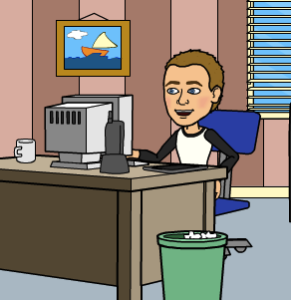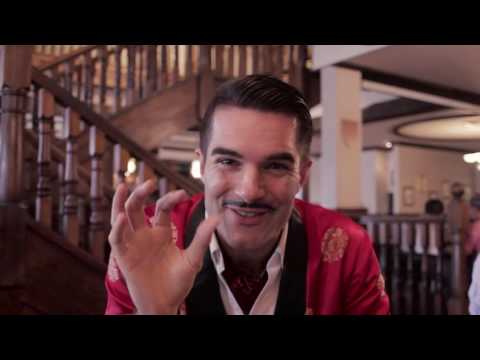8 reasons why you should join a comedy sketch group
We’ve heard from many writers and performers in the industry recently about their journey in comedy and we noticed a common theme. So many successful comedians started out in sketch groups. Which got us thinking, what is it about sketch groups that makes them such a great breeding ground for new comedy talent?
We came up with 8 reasons we believe sketch groups work well for creative people looking to make an impact in comedy:
- It gets you into a routine. It’s easy to say you want to get into comedy, but actually using your spare time to do it is another matter. Even if you love it, sometimes the actual act of doing is harder than it should be. If you are part of a sketch group you will have regular meet ups, performance dates, writing deadlines, and other people to keep you in check and find that inspiration.
- Learn from people with different ideas. You know what you find funny is funny, otherwise you wouldn’t find it funny, right? Or something like that. But you will be surprised how much you can learn from sharing ideas with other people, and being able to find out what they think of yours. Learning what other creators do well and not so well is such a good way to develop your own skills.
- Find out which people you work well with and which you don’t. This is a natural thing for everyone. You will work better with some types of people than others. If you are working in a day job outside of comedy you will probably have identified types of people you click with and others you really don’t. The same will be true for your creative side, and there’s no better way to find out than by experimenting. Sketch groups provide the perfect environment to do this as a team of 4 or 5 people will inevitably have different styles but is small enough to work closely together.
- Learn to create funny content. Sketches are a great way to make sure you focus your writing and keep it consistently funny. By their nature sketches are short, so you don’t have time to indulge. Sketch writing helps you practise getting those laughs out quickly.
- Try out both performance and writing. If you are a writer who has never performed, how can you appreciate whether actors really understand your script? Similarly if you are a performer who has never written comedy, you are missing out on a fundamental part of the creative process. Sketch groups often have a combination of writers and performers, and giving both art forms a go is a great way to develop your skills.
- See your writing brought to life immediately. As a writer it is hard to know what parts of your work are really funny until you see them performed. If you are part of a sketch group you can see your work performed immediately by people who understand your style of comedy, rather than having to find a group of actors and writers for a specific read through every time you produce something new. This instant feedback is so helpful and is a major advantage of collaborating.
- Start at no pressure events. Comedy sketch nights are becoming increasingly popular and are a great way to test out your material in what will probably be a relatively small venue of comedy enthusiasts. There really is no substitute for doing, and performing at these events allows you to learn how an audience reacts to your comedy.
- Creating with others is great fun and inspiring. The whole point of making comedy is to make other people laugh. As part of a sketch group you will always be trying to make each other laugh through the creative process, and this is just a more entertaining way to create than in isolation.
As we said at the top many great comedians started out this way and went on to make a career in the industry. This certainly doesn’t mean you have to follow the same path, but clearly it has been a great starting point for many people now working full time in comedy. Some of the more famous examples include Hugh Lawrie, Stephen Fry and Rowan Atkinson creating sketches in the Cambridge Footlights, Harry Enfield and Paul Whitehouse, Dawn French and Jennifer Saunders. There are too many to list here but reasons 1 to 8 have clearly benefited the skills of many great comedians who have become legends in the genre.
So if you want to develop your comedy skills, have some fun, and start to make an impact, joining a sketch group will be a great place to start. Give it a try, you never know where it could lead.
To make sure you stay up to date with the latest opportunities and insights in the world of comedy, join thousands of creators and fans receiving our free weekly newsletter:


 Ricky and Steve worked together at a London radio station XFM in the late 90s. Ricky invented a “Seedy boss” character while working on the show and Steve went to work at the BBC and did a course for trainee TV producers. Part of the course was producing a piece of work from a one-day video shoot. So Ricky and Steve got together to write and film a short documentary about the delusional boss they called David Brent. A first rough cut of The Office was filmed where Ricky used to work at the University of London Union, and it was this material that was identified as having potential by the BBC.
Ricky and Steve worked together at a London radio station XFM in the late 90s. Ricky invented a “Seedy boss” character while working on the show and Steve went to work at the BBC and did a course for trainee TV producers. Part of the course was producing a piece of work from a one-day video shoot. So Ricky and Steve got together to write and film a short documentary about the delusional boss they called David Brent. A first rough cut of The Office was filmed where Ricky used to work at the University of London Union, and it was this material that was identified as having potential by the BBC. Sketch, Please! is an open forum for writers and performers to take part in a monthly comedy sketch show. Send your script and the guys at Podcast Adventures will produce, perform and record the script for the world to hear on their monthly podcast! You also have the chance to record the show as a performer.
Sketch, Please! is an open forum for writers and performers to take part in a monthly comedy sketch show. Send your script and the guys at Podcast Adventures will produce, perform and record the script for the world to hear on their monthly podcast! You also have the chance to record the show as a performer.

